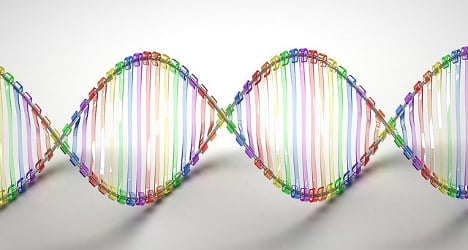Under the 2004 genetic testing act, Swiss law allows DNA found at crime scenes to be analyzed and compared against DNA on file to establish a match.
But unlike in some other countries, Swiss investigators are not allowed to test the coding strand of DNA – that is, the strand that gives information on personal characteristics such as hair colour, eye colour, build, age and even any illnesses the person may have, such as diabetes.
Switzerland’s restrictions on DNA testing hit the headlines after a violent rape near Lucerne in July last year which left the 26-year-old female victim paralyzed.
In October police carried out DNA tests on 372 men in the area to compare against DNA taken from the victim’s clothes at the scene.
The testing – which individuals have the right to refuse – focused on people who had similar characteristics to the description given by the victim of her attacker.
However, should the DNA found at the scene have been analyzed for personal characteristics, this could have narrowed down the search for the attacker, who has still not been caught.
As a result of the case, in December MP Albert Vitali proposed a motion to modify Swiss law to allow the testing of coding DNA.
The issue returned to the limelight on Wednesday when Swiss-German television channel Rundschau made public a letter sent to Swiss justice minister Simonetta Sommaruga last month from the partner of Carla Schauer, the woman murdered with her two teenage sons and son’s girlfriend in their home in Rupperswil in December.
In it, he appealed for genetic profiling be used in the case, reported news agency ATS.
The response, made three days before a 33-year-old local man was finally arrested for the crime, five months after it was committed, did not explain why Switzerland does not authorize DNA profiling, said ATS.
Following the two cases the political climate is more favourable than ever towards changing the law, reported the news agency.
Vitali’s bill has already been accepted by the lower house of parliament and is awaiting discussion by the senate.
But not everyone is convinced, with some fearing the state could build a database of personal characteristics that would put people under suspicion unduly should they happen to have the same eye colour as a criminal.
And personal data does not always bring certainty, Basel data protection specialist Beat Rudin told broadcaster SRF, since everyone can change their appearance.
Speaking to daily Le Matin, Olivier Guéniat, head of Neuchâtel police, raised a further issue. “DNA can reveal an illness like diabetes and lead investigators to look into the purchase of insulin in pharmacies,” he said.
“But a suspect might not want that information divulged, or may not even know it himself.”
DNA profiling should be reserved for the most serious crimes and decided case by case by a court or ethics body, he added.



 Please whitelist us to continue reading.
Please whitelist us to continue reading.
Member comments